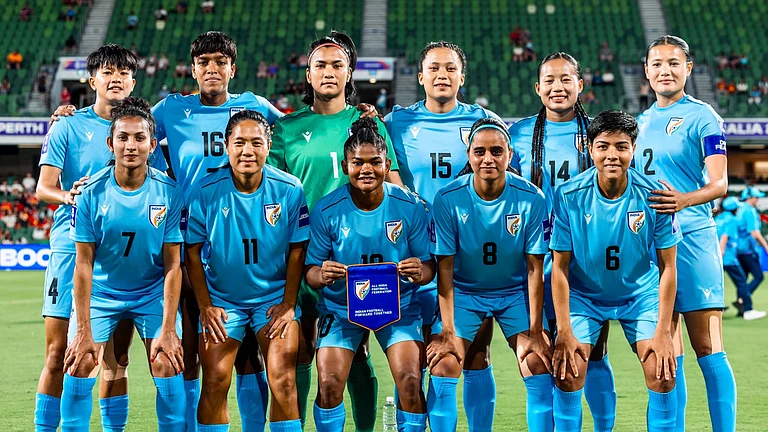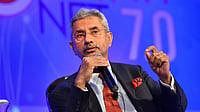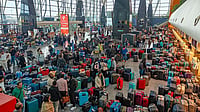Defence Minister Rajnath Singh on Wednesday said India is looking forward to furthering its engagement in the Indian Ocean Region (IOR) to ensure the region takes its rightful place as the driving engine of the global economy.
He said India is determined to take a responsible role and continue to work for the regional and global security of the IOR. Representatives of around 44 countries participated in the IOR meeting on the sidelines of Defence Expo 2022 in Gandhinagar.
Singh said India is willing to work together with all the stakeholders to ensure a rules-based maritime border for the benefit of one and all in the region. He also said that interdependence instead of dominance is the only way to keep this important trade and energy waterway stable.
He called for IOR countries to put in a collective effort to address the present and emergent threats to ensure stability in the region. The defence minister said India looks forward to working with the representatives of governments, businesses and academia of partner countries to promote cooperation and closer interaction among the nations seeking peace and stability in the region.
Addressing the IOR + Defence Ministers' Conclave, Singh said India “unequivocally rejects any hierarchical conception of global order” and believes in one based on mutual respect and the well-being of every country.
“India is determined to take a responsible role and to continue to work for regional and global security. We have demonstrated our commitment to organisational as well as operational aspects at various bilateral and multilateral forums of the IO region, and look forward to furthering our engagement to ensure that the IOR takes its rightful place as the driving engine of the global economy in the near future,” Singh said.
He said that sustainable exploitation of maritime resources will be an important means for sustained growth and development of nations across the IOR in the 21st century. “We must therefore ensure a collaborative effort in ensuring the maritime expanse of the Indian Ocean is peaceful and is optimally harnessed for ensuring regional and global food security,” he said.
Singh said terrorism, “exported, supported or coordinated through maritime routes” remains a major concern, and “India continues to guard against the spread of terrorism by sea routes.”He underlined rising narcotics smuggling and illegal and unregulated fishing as the challenges the IO region countries need to collaborate upon.
“We have taken that initiative to develop a comprehensive maritime domain awareness in the IO region which has resulted in the signing of technical agreements for sharing or shipping information with many countries,” the defence minister said, adding that India looks forward to more partners in this initiative.
Singh said, "broader and deeper disaster management collaborations among IO region countries" is needed to better respond to adverse events.
"We look forward to building upon each of our expertise through cooperative engagements. We have been engaging with this in the region and will continue our engagement and we wish to move ahead from sharing to operating together to meet challenges in the future,” he said.
He said that the aerospace and defence sector in India has come a long way and mentioned India's first indigenously constructed aircraft carrier INS Vikrant, induction of the indigenously developed attack helicopter Prachand etc. as “the milestone in our march towards developing indigenous defence manufacturing capabilities.”
He said that when peace and security of any region are threatened, the entire world feels its impact in multiple ways.
“The recent Ukrainian conflict shows how its ripple effects could adversely impact food security for the most vulnerable countries. Similarly, falling states owe a challenge not only to their region but also the world at large, since these states may act as a nursery of terrorism, piracy and trafficking,” he said.
Singh said climate change has a huge impact on the maritime environment. "Its effects can pose challenges in taking forward national and regional aspirations, he said, adding that extreme weather events and natural disasters remain major challenges in the region.
(With PTI Inputs)






















